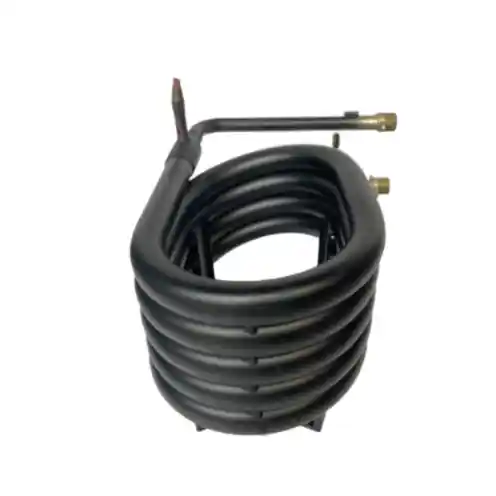Introduction
Nickel-Copper alloys are widely used in the construction of coaxial heat exchangers due to their excellent corrosion resistance, thermal conductivity, and mechanical properties. This article provides an in-depth exploration of the application of Nickel-Copper alloys in coaxial heat exchangers, discussing their advantages, manufacturing considerations, and comparison with other materials.
Table: Comparison of Nickel-Copper with Other Materials
| Property | Níquel-Cobre | Acero inoxidable | Cobre | Aluminum |
|---|---|---|---|---|
| Corrosion Resistance | High | Moderate | Moderate | Low |
| Thermal Conductivity | High | Moderate | High | High |
| Mechanical Strength | High | High | Moderate | Low |
| Cost | Moderate | High | Moderate | Low |
| Weight | Moderate | High | Moderate | Low |
Advantages of Nickel-Copper in Coaxial Heat Exchangers
- Corrosion Resistance: Nickel-Copper alloys exhibit excellent resistance to corrosion in various environments, making them suitable for both indoor and outdoor applications.
- Thermal Conductivity: The high thermal conductivity of Nickel-Copper alloys ensures efficient heat transfer, maximizing the performance of the heat exchanger.
- Mechanical Strength: Nickel-Copper alloys possess good mechanical strength, allowing them to withstand high pressures and mechanical stresses.
- Compatibility: Nickel-Copper is compatible with a wide range of fluids, including water, refrigerants, and various chemicals.
- Longevity: The corrosion resistance and durability of Nickel-Copper alloys contribute to the long service life of coaxial heat exchangers.
Manufacturing Considerations
- Material Selection: Nickel-Copper alloys are available in different compositions, and the selection should be based on the specific requirements of the heat exchanger application.
- Forming and Fabrication: Nickel-Copper can be easily formed and fabricated into the desired shapes and sizes using standard manufacturing techniques such as bending, welding, and soldering.
- Quality Control: Stringent quality control measures should be implemented throughout the manufacturing process to ensure the production of high-quality Nickel-Copper coaxial heat exchangers.
Conclusion
Nickel-Copper alloys offer numerous advantages for coaxial heat exchanger applications, including excellent corrosion resistance, high thermal conductivity, and good mechanical strength. By choosing Nickel-Copper as the material for coaxial heat exchangers, industries can ensure efficient heat transfer, enhanced durability, and long-term performance of their heat exchange systems.


